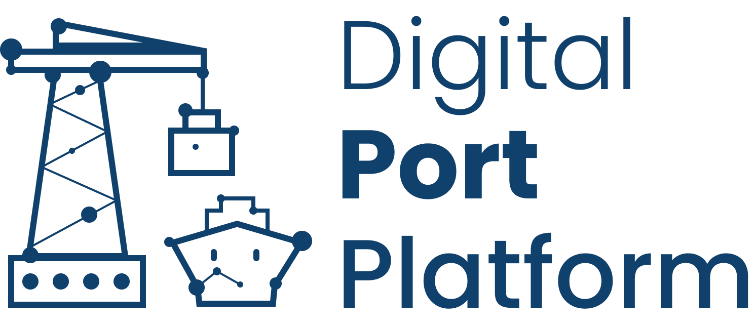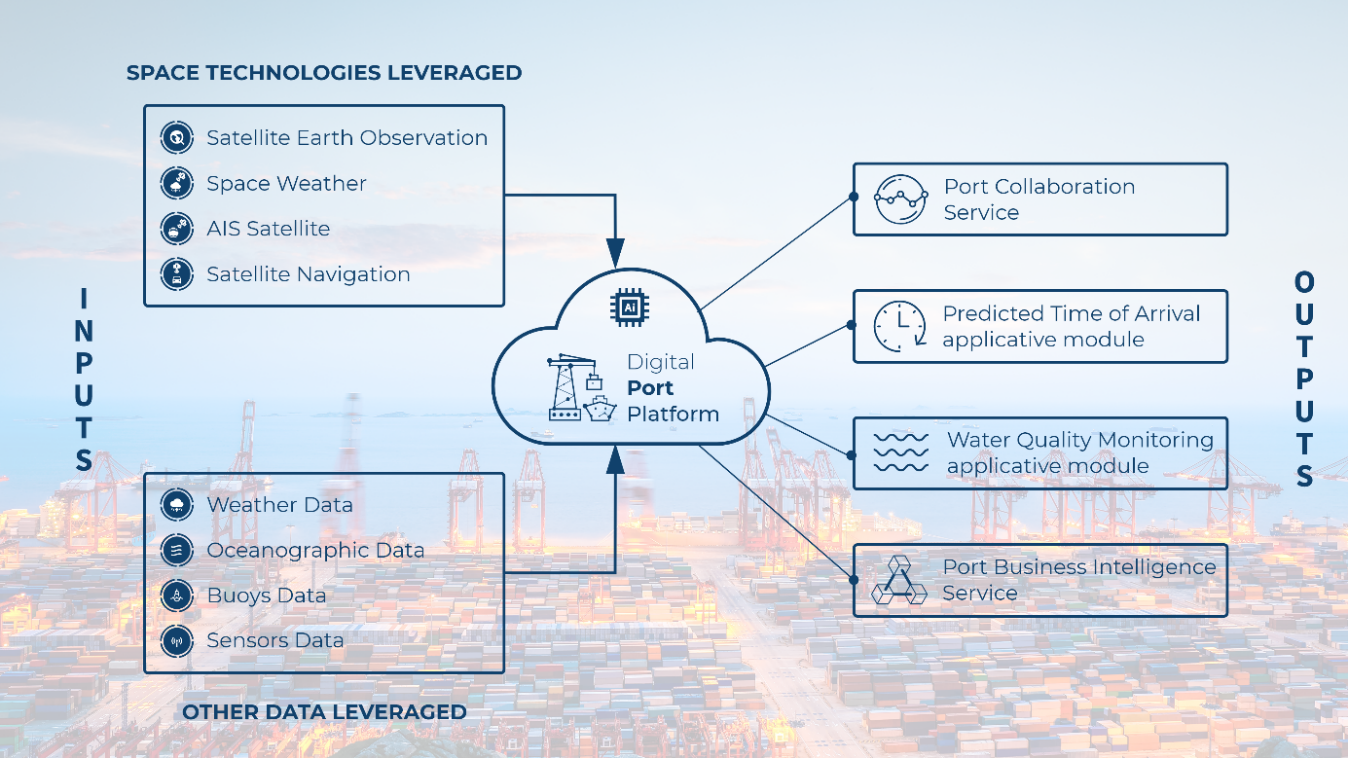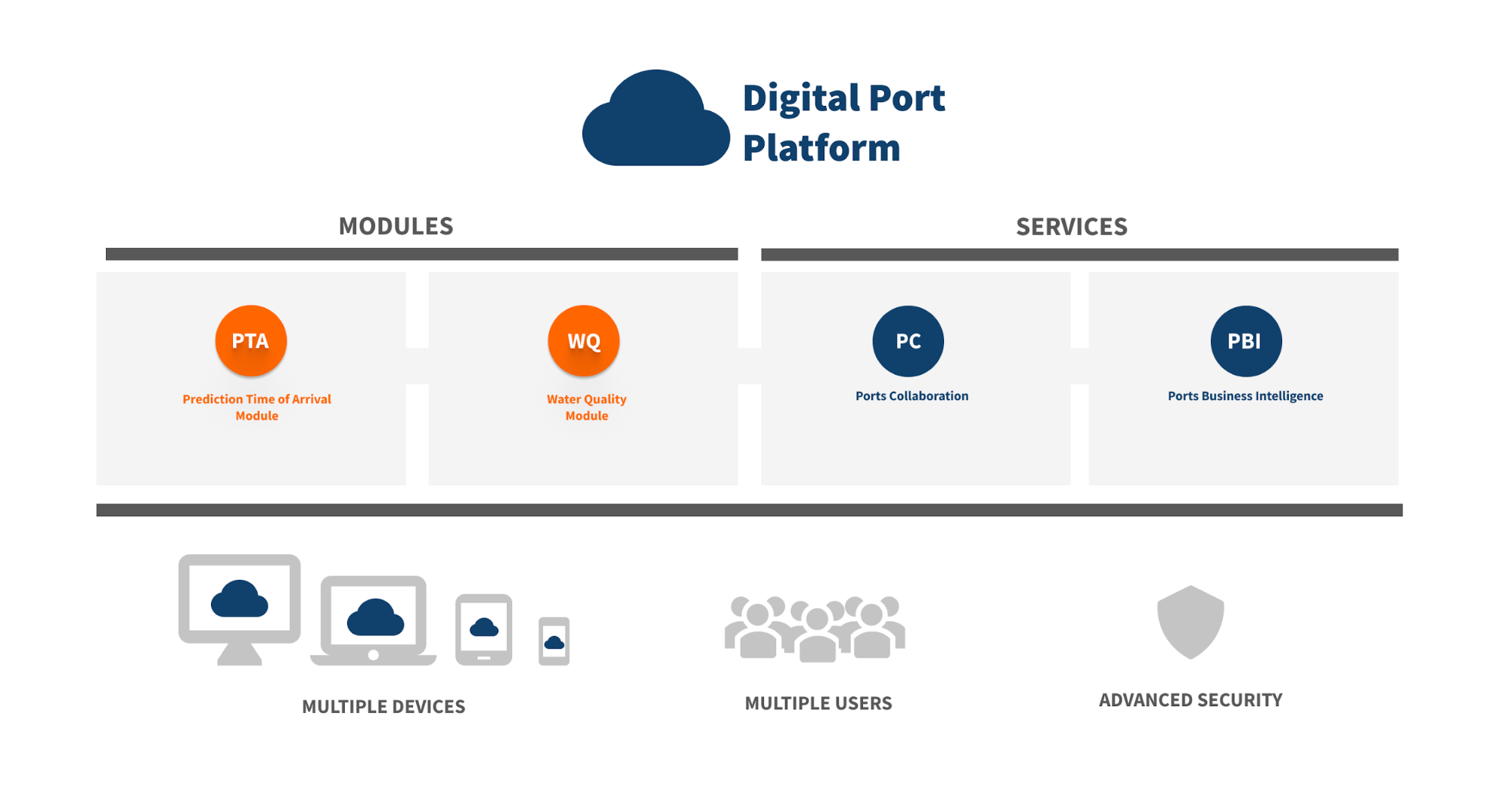
Objectives of the service

Within the last 12 months, Ports have faced unforeseen heavy congestion and vessel delays worldwide.
The Estimated Time of Arrival (ETA) of a vessel is a fluctuating indicator owned and shared between a lot of different actors that are not necessarily communicating with each other directly.
The port calls efficiency is a critical issue for both, Ports and Shipping Companies.
Accordingly, a shared collaboration platform is more than ever needed to face the issues and allow all the actors to have the same information.
At the same time, Ports are facing environmental challenges. The International Maritime Organisation ranked water quality monitoring among the Top 10 goals for ports.
The Digital Port Platform provides a set of connected applicative modules and services to improve the port’s operations and lower their environmental impacts thanks to real-time situational awareness.
The Digital Port Platform is articulated around 4 services:
-
A Predicted Time of Arrival applicative module
-
A Water Quality Monitoring applicative module
-
A Port Collaboration Service
-
A Port Business Intelligence Service
Users and their needs
Ports are the Hub where all maritime activities meet.
The Digital Port Platform targets the Port Authorities, the Port or Terminal Operators, Port Master Office, and the Ship Managers to optimize their operational efficiency while reducing their impacts on the environment and more specifically to lower water pollution.
The Digital Port Platform is articulated with various modules & services:
- Predicted Time of Arrival applicative module
- Accurate information about the incoming vessels (search, identify, blacklisted, exact position, etc…)
- Estimation of full consumption and CO2 emissions of specified vessels
- Accurate ETA prediction, comparison, share ETA among all stakeholders
- Water Quality Monitoring applicative module
- Monitoring of water quality from sensors (real-time and historical data) that can be moved to a strategic place
- Prediction to optimize dredging operations, know the incoming traffic, detect the marine oil pollution incident, and understand propagation …
- Receive alerts in real-time and in case of incoming stormwater or flood risk
- Visualize a risk map of water areas threatened with pollution coming from the land
- A Port Collaboration Service
- Improve internal & external collaboration: Pin and label a pollution event, history of pollution observations, sharing of the blacklisted vessels
- A Port Business Intelligence Service
- News feed, per topics, and testimonials and use cases of port authorities’ innovation
Service/ system concept
The Digital Port Platform provides a holistic digital ecosystem dedicated to ports.
This set of connected applicative modules and services is cloud-based, fully secured, and can be accessed through any device – to deliver:
-
Comprehensive vision of operation and water environment
-
Enhance collaboration
-
Increase awareness of innovation
The user can enhance Just in Time operations and Water monitoring thanks to Space Assets.

Space Added Value
PTA module
Sat AIS:
-
Identify incoming vessels
-
Visualise incoming vessels’ position
-
Calculate remaining route and prediction of Arrival time based on sat AIS and historical AIS data
Sat EO:
-
Visualise incoming vessels’ position
-
Detect oil spill emissions for incoming vessels
Space weather
- Integrate space weather prediction in the calculation of prediction of arrival time to enhance the accuracy of this indicator
Water Quality module
Space weather:
- Integrate space weather for stormwater prediction
5G:
- Transfer of data from buoys and water quality sensor
Sat EO:
- Predict turbidity based on sat EO image
Space Nav:
- Improve WQ monitoring with mobile sensors that will be able to move to strategic monitoring locations within the port vicinity
Sat AIS:
- Identify vessel position in the port vicinity
Current Status
SINAY’s Digital Port Platform infrastructure and framework are ready for large scale deployment.
Main services regarding logistics and environmental quality have been rolled-out and pilot operations have been started.



